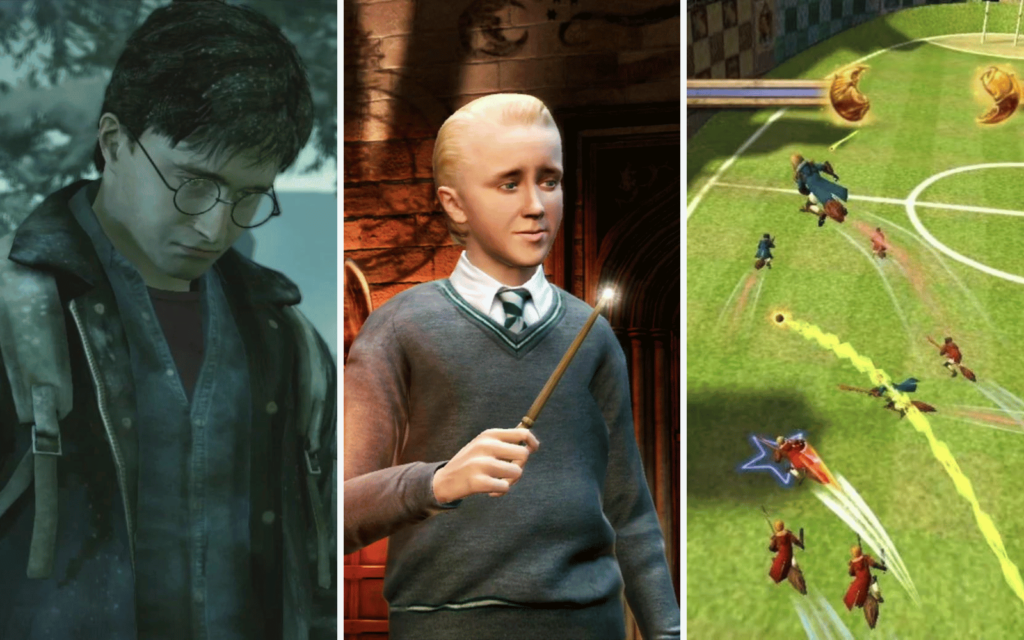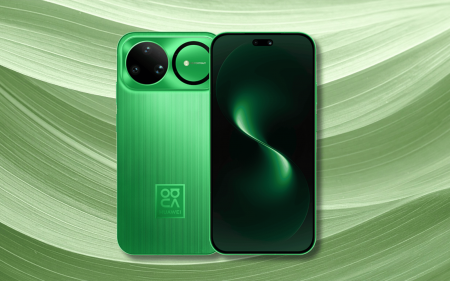The best Harry Potter video game made to date doesn’t include mention of the Boy Who Lived himself. That’s a dramatic change from the last few decades, which saw releases featuring Potter, Weasley, and Granger of varying quality. Some of those were worthy of your time. Others were of decidedly more dubious quality.
Most of the latter entries are lost in the mists of time. Others are still around. They may even be fondly remembered, in the case of Quidditch World Cup. But those players are remembering the time they spent navigating a broomstick in other Harry Potter games. It was never good for more than a minor distraction. That’s nostalgia at work. Still others… never should have made it to PCs, consoles, or mobile phones. Let’s check some of those out, shall we?
Harry Potter and the Deathly Hallows Pt 1/Pt2 (2010/2011)
You know what a Harry Potter game really needed? Not an exploratory RPG or an adventure game. It really needed to emulate cover-based shooters like Gears of War. Wait. No, it didn’t. So why the heck did Warner Bros. think it was a good idea… twice? The silly thing is that it could have worked. It really could have. Instead, it was a blandly generic experience that substituted guns and grenades for a wand and… potions (but you throw ’em). If Electronic Arts had swapped out Potter and friends with different character models and given each of them a gun, you wouldn’t have been able to tell the game apart from a stock cover-based third-person shooter.
Harry Potter for Kinect (2012)
Making a Kinect game of a beloved media property was one sure way of churning out an absolute abomination (I’m Han Solo, anyone?) Pottah’s game (with apologies to Draco Malfoy) wasn’t quite that bad but it wasn’t fantastic either. A selection of minigames covering the entirety of the book’s storyline, Harry Potter for Kinect was functional but wholly insubstantial. At least it looked the part. It had a few interesting features — the ability to scan yourself into the game as a schoolkid was one — but otherwise, it was wonky movement controls and on-rails experiences that did little to stand out from your average YouTube video. They featured about the same amount of proper player interaction, at the very least.
Harry Potter: Wizards Unite (2019)
This game should have been a winner for Niantic, the developer behind Pokémon Go. It had a massive potential player base, an interesting concept, and the game model was demonstrably effective… so what went wrong? The same thing that kills off so many mobile games. It leaned too heavily on microtransactions and collapsed under the weight of its own Hippogriff dung. It also didn’t have anything to really set it apart from Nintendo’s game besides swapping little critters out for wizards and monsters. Finally, Wizards Unite‘s 2019 launch was quickly followed by the 2020 global lockdown. For a game that required folks to be outside and interacting, it was a death blow and the game shut down in early 2022.
Wonderbook: Book of Spells (2012)
It helps if you think of this game as an early attempt at augmented reality. Released at a time when the PlayStation 3 was still king and Move controllers littered the living room, Wonderbook called for the world’s first grimoire peripheral and saw actions in the real world turned into onscreen action. It’s like the Kinect, but more specifically targeted. Aimed (mostly) at kids, the game required the Move, a PlayStation Eye camera, and some juvenile sensibilities. It did well enough to warrant a sequel, Book of Potions, which offered more variety to players, but the Wonderbook concept as a whole only lasted four games (two of which were not HP related) before Sony dropped the idea.
Harry Potter: Quidditch World Cup (2003)
Only the Boy Who Lived could secure such a range of game genres. One of the only fictional sports to be committed to disc, Quidditch World Cup was based on the popularity of the Quidditch minigame found in other, better titles. (Now do BASEketball, you cowards. Actually… maybe not.) As games go, an entire wizard-based World Cup wasn’t a terrible idea but Electronic Arts might have done better if they’d taken the concept seriously and given it to EA Sports to develop. The game’s functional and it’s actually fun to play but it lacks enough depth to keep players properly entertained for more than a couple of hours. After that, repetition sets in and the game’s flaws come shining through.




